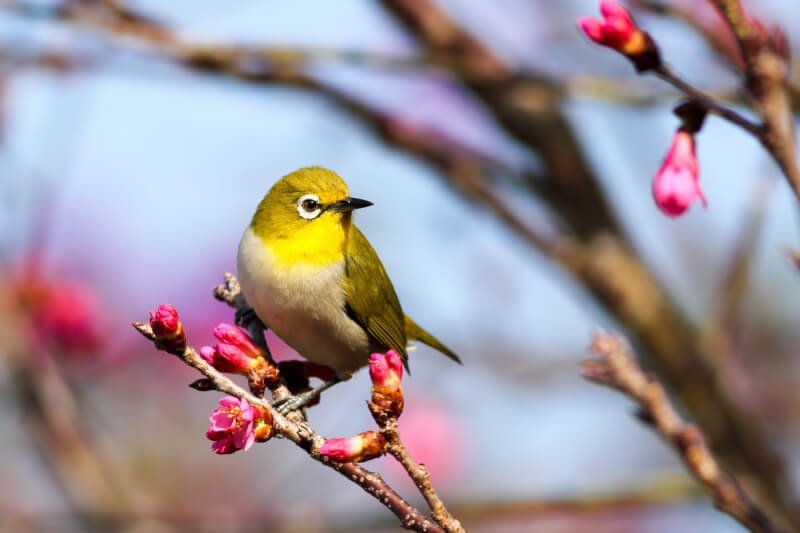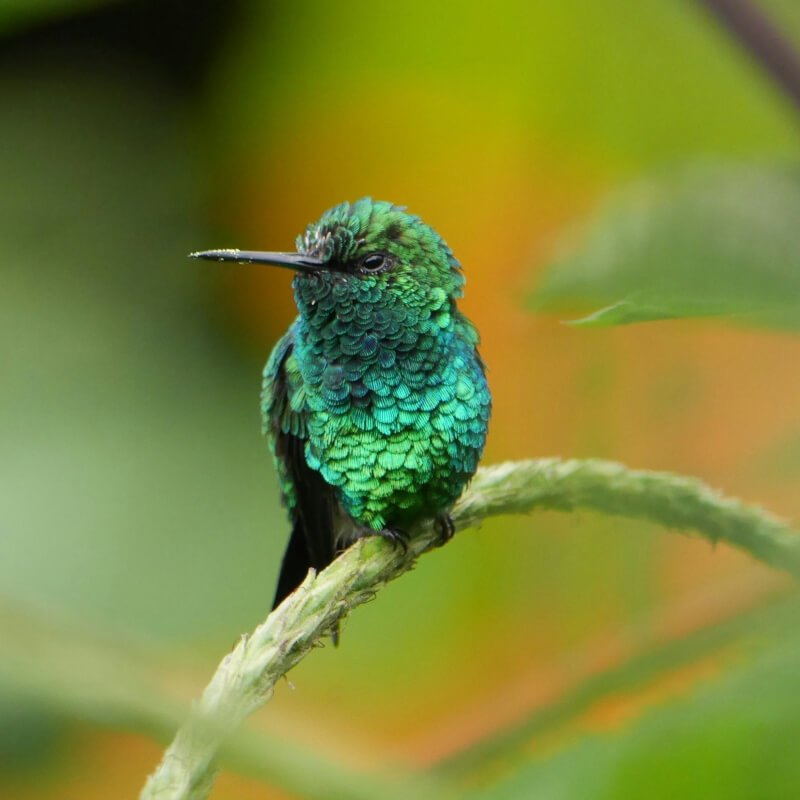Have you been looking for ways to boost your feathered friend’s immune system? Look no further! In this article, we will explore the top strategies to enhance your bird’s immune system and ensure their overall health and well-being. With these simple yet effective tips, you can provide your bird with the best possible care and help them fend off common illnesses. So, let’s get started on the path to a healthier and happier bird!
1. Proper diet
Keeping your bird’s immune system strong starts with providing a proper diet. A well-balanced nutrition is essential to ensuring that your feathered friend gets all the necessary nutrients to fight off infections and promote overall health. Make sure to include a variety of foods that meet their dietary requirements.
1.1 Balanced nutrition
Offer a diet that consists of a mix of seeds, pellets, and fresh foods. This ensures that your bird receives a wide range of vitamins, minerals, and proteins necessary for a strong immune system. Consult with your avian veterinarian to determine the ideal diet for your specific bird species.
1.2 Fresh fruits and vegetables
Incorporate a variety of fresh fruits and vegetables into your bird’s diet. These provide essential vitamins and antioxidants that can help boost their immune system. Colorful options like carrots, bell peppers, kale, and berries are excellent choices.
1.3 High-quality bird feed
Invest in high-quality bird feed that is specifically formulated for your bird species. These feeds are designed to provide a balanced diet and support your bird’s immune system. Read the labels carefully and choose a brand that uses natural ingredients without any artificial additives.
1.4 Limited treats
While it can be tempting to spoil your feathered companion with treats, it is important to limit their intake. Too many treats can disrupt the balance of their diet, leading to nutritional deficiencies and a weakened immune system. Stick to small, healthy treats and save them for special occasions.
1.5 Adequate hydration
Just like humans, birds need to stay properly hydrated to maintain a healthy immune system. Always provide fresh, clean water for your bird. Consider using a water dispenser that prevents contamination and make sure to change the water daily to ensure freshness.
2. Regular vet check-ups
Regular visits to the avian veterinarian are crucial for maintaining your bird’s immune system. These check-ups ensure that any potential health issues are detected early, allowing for appropriate treatment and preventive measures.
2.1 Annual physical examination
Schedule an annual physical examination for your bird. During this visit, the veterinarian will thoroughly examine your bird, check their weight, look for any signs of illness or abnormalities, and provide any necessary vaccinations or treatments.
2.2 Vaccinations
Follow your veterinarian’s recommendations for vaccinations. Vaccinations can protect your bird against common diseases and significantly boost their immune response. Stay up to date with the recommended vaccination schedule to ensure optimal protection.
2.3 Routine blood tests
Routine blood tests are important for detecting any underlying health issues that may compromise your bird’s immune system. These tests can assess the bird’s overall health, organ function, and identify potential deficiencies. Regular blood tests allow for timely interventions and adjustments to their diet or medication if necessary.
2.4 Fecal examinations
Fecal examinations are essential for detecting potential parasites or infections in your bird’s gastrointestinal system. These tests can identify the presence of harmful organisms and determine the appropriate treatments to prevent further health complications.
2.5 Beak and nail trims
Regular beak and nail trims are not only important for your bird’s comfort but also for their overall health. Overgrown beaks and nails can lead to injuries and infections, which can weaken the immune system. Consult with an avian veterinarian or an experienced bird groomer to ensure proper trimming techniques.

3. Appropriate habitat
Creating an appropriate habitat is crucial in maintaining your bird’s overall health and well-being. A clean and well-designed cage, along with proper ventilation and enrichment, contribute to a healthy immune system.
3.1 Clean and spacious cage
Provide a clean and spacious cage for your bird. Regularly clean and disinfect the cage to prevent the buildup of bacteria and pathogens that could compromise their immune system. Ensure that the cage is large enough for your bird to move around comfortably and engage in natural behaviors.
3.2 Proper ventilation
Good ventilation is essential to prevent the accumulation of harmful fumes or stagnant air, which can negatively impact your bird’s respiratory health. Place the cage in an area with adequate airflow and avoid exposing them to drafts or strong air conditioning.
3.3 Temperature and humidity control
Maintain appropriate temperature and humidity levels within the bird’s habitat. Birds are sensitive to extreme temperatures and humidity, which can stress their immune system and make them more susceptible to illness. Aim for a comfortable environment that mimics their natural habitat as closely as possible.
3.4 Cage enrichment
Enrich your bird’s cage with various perches, climbing structures, and toys. These provide mental stimulation, promote physical activity, and prevent boredom. Rotate toys regularly to keep your bird engaged and offer different types of toys that encourage foraging and problem-solving.
3.5 Safe and stimulating toys
Choose toys that are safe and suitable for your bird’s size and species. Avoid toys with small parts that can be swallowed or hazardous materials that could potentially harm them. Consider different types of toys like puzzle toys, bells, and interactive toys to provide mental and physical stimulation.
4. Regular exercise
Regular exercise is essential for keeping your bird physically and mentally fit. Engaging in activities that promote movement and play strengthens their immune system and overall health.
4.1 Flight opportunities
Allow your bird to engage in natural flight. If possible, create a safe space where they can spread their wings and fly. Flight exercises not only provide physical exercise but also help to maintain strong muscles and bone structure.
4.2 Encouraging physical activity
Promote physical activity by providing ample space for your bird to move around within their cage. Include perches at varying heights to encourage climbing, hopping, and stretching. Additionally, offer bird-safe toys that encourage movement and exercise, such as swings, ladders, and ropes.
4.3 Supervised playtime outside the cage
Allowing supervised playtime outside the cage provides your bird with the opportunity to explore and exercise in a larger space. Create a bird-proofed room or use a play gym specifically designed for birds. Always ensure a safe environment during play and closely monitor their interactions with other pets or potential hazards.
4.4 Interactive toys for exercise
Provide interactive toys that require physical interaction from your bird. Toys that can be pushed, spun, or manipulated encourage movement, problem-solving, and overall mental stimulation. These toys not only keep your bird entertained but also support their physical well-being.
4.5 Mental stimulation
In addition to physical exercise, mental stimulation is equally important for your bird’s overall health. Engage your bird’s mind by offering puzzle toys, foraging toys, and toys that encourage problem-solving. Regularly rotate and introduce new toys to maintain their curiosity and mental engagement.

5. Reduce stress
Reducing stress is crucial for maintaining a strong immune system in your bird. A calm and stress-free environment helps to promote overall health and well-being. Implementing strategies to minimize stress can greatly benefit your feathered friend.
5.1 Creating a calm environment
Create a calm and peaceful environment for your bird. Avoid loud noises, excessive commotion, and sudden changes that could startle or stress your bird. Provide a quiet space where they can retreat, and consider playing calming music or nature sounds.
5.2 Minimizing disruptions
Try to maintain a consistent routine and minimize disruptions in your bird’s daily life. Birds thrive on predictability, and sudden changes or disruptions can cause stress and weaken their immune system. Establish regular feeding, sleeping, and playtime schedules to provide a sense of stability.
5.3 Providing a consistent routine
Consistency is key when it comes to reducing stress in birds. Establish a consistent routine for feeding, social interaction, and sleep. Birds appreciate structure and rely on a predictable routine to feel safe and secure.
5.4 Avoiding sudden changes
Avoid making sudden changes to your bird’s environment or routine unless absolutely necessary. Gradual transitions help your bird adjust more easily and avoid unnecessary stress. Introduce new toys, perches, or changes to their cage slowly, allowing them time to become familiar and comfortable with these changes.
5.5 Positive reinforcement training
Utilize positive reinforcement training methods to build trust and strengthen the bond between you and your bird. Positive interactions and rewards help reduce stress and anxiety, ultimately supporting their immune system. Reward desired behaviors with treats or verbal praise to encourage a positive and stress-free environment.
6. Good hygiene practices
Maintaining good hygiene practices is crucial for preventing the spread of bacteria, parasites, and diseases in your bird’s environment. Regular cleaning, waste management, and bathing help keep your bird healthy and minimize the risk of infections.
6.1 Cleaning the cage regularly
Regularly clean your bird’s cage to prevent the buildup of bacteria, droppings, and other contaminants. Remove any uneaten food and wipe down perches, toys, and surfaces with bird-safe disinfectant solutions. A clean cage helps to reduce the risk of infections and keep your bird healthy.
6.2 Proper waste management
Dispose of droppings and soiled bedding promptly and correctly to prevent the spread of diseases and the attraction of pests. Use appropriate waste management techniques, such as bagging waste securely, to minimize the risk of contamination.
6.3 Regular bathing or misting
Provide regular opportunities for your bird to bathe or be misted. Bathing helps to remove dirt, dust, and other particles from their feathers, keeping them clean and reducing the likelihood of skin irritations or infections. Use lukewarm water and offer a shallow dish or a spray bottle for misting.
6.4 Disinfecting toys and perches
Regularly disinfect toys, perches, and other cage accessories to prevent the buildup of harmful bacteria or parasites. Follow the manufacturer’s guidelines or consult with your avian veterinarian for recommended disinfectants that are safe for birds.
6.5 Preventing exposure to harmful substances
Birds are highly sensitive to certain substances, so it is important to prevent their exposure to toxic or harmful chemicals. Avoid using aerosol sprays, air fresheners, or cleaning products with strong fumes around your bird. Ensure that any plants in their environment are safe and non-toxic.

7. Minimize exposure to pathogens
Minimizing your bird’s exposure to pathogens is crucial in maintaining their immune system. Implementing measures to isolate new birds, quarantine sick birds, and limit contact with other animals can greatly reduce the risk of infectious diseases.
7.1 Isolate new birds
If introducing a new bird into your household, ensure that they are properly isolated from your existing bird(s) for a period of time. This helps to prevent the spread of any potential illnesses or diseases that the new bird may carry.
7.2 Quarantine sick birds
If your bird becomes sick, it is important to quarantine them from other birds in your household. This prevents the spread of any contagious diseases and allows for appropriate medical treatment and monitoring.
7.3 Limit contact with other animals
Minimize direct contact between your bird and other animals, such as dogs or cats, to reduce the risk of transmitting diseases. Always supervise interactions between different pets and ensure that they cannot harm or stress each other.
7.4 Avoid crowded places
Avoid taking your bird to crowded areas or places with a high concentration of other birds, such as pet stores or bird shows. These environments increase the risk of exposure to pathogens and can compromise your bird’s immune system.
7.5 Good respiratory hygiene
Practice good respiratory hygiene when handling your bird and interacting with their environment. Avoid breathing directly on your bird or exposing them to smoke or strong airborne irritants.
8. Provide appropriate supplements
Supplements can be beneficial in boosting your bird’s immune system and overall health. Consult with your avian veterinarian before introducing any supplements to ensure that they are appropriate and necessary for your specific bird species.
8.1 Vitamin and mineral supplements
Certain bird species may benefit from a proper balance of vitamins and minerals to support their immune system. However, it is important to work with your veterinarian to choose the right supplements and determine the correct dosage for your bird’s individual needs.
8.2 Probiotics and prebiotics
Probiotics and prebiotics can help maintain a healthy digestive system, which is closely linked to your bird’s overall immunity. These supplements introduce beneficial bacteria and support gut health, reducing the risk of digestive issues and promoting a strong immune system.
8.3 Herbal immune boosters
Herbal immune boosters, such as echinacea or astragalus, have been used in avian medicine to help strengthen the immune system. However, always consult with your avian veterinarian before introducing these supplements, as their use can vary depending on your bird’s specific health needs.
8.4 Essential fatty acids
Essential fatty acids, such as omega-3 and omega-6, play a crucial role in maintaining a healthy immune system. These fatty acids can be found in certain bird-friendly foods, or your veterinarian may recommend specific supplements to ensure your bird receives an adequate supply.
8.5 Antioxidant-rich foods
Incorporate antioxidant-rich foods into your bird’s diet to support their immune system. Foods like blueberries, leafy greens, and sweet potatoes are packed with antioxidants that can help neutralize harmful free radicals and promote overall health.

9. Environmental enrichment
An enriched environment is essential for your bird’s mental and emotional well-being. Providing opportunities for natural sunlight exposure, auditory and visual stimulation, foraging, and social interaction helps to support their immune system.
9.1 Natural sunlight exposure
Allow your bird access to natural sunlight, which is an excellent source of vitamin D. Vitamin D is important for calcium metabolism and plays a vital role in supporting the immune system. Ensure there is a safe and shaded area for your bird to bask in natural sunlight, and remember to avoid direct exposure during the hottest parts of the day.
9.2 Auditory stimulation
Birds are highly auditory creatures, so providing auditory stimulation is essential for their well-being. Offer a variety of sounds, such as calming music, nature sounds, or recordings of birds singing. Avoid loud or jarring noises, as these can cause stress and anxiety.
9.3 Visual stimulation
Visual stimulation is equally important for your bird’s mental and emotional health. Place the cage where your bird can observe their surroundings, such as near a window or in a room where there is constant activity. Introduce visual stimuli like colorful toys, stimulating videos or bird-friendly artwork to keep your bird engaged and mentally stimulated.
9.4 Foraging opportunities
Encourage natural foraging behaviors by providing opportunities for your bird to search for food. Hide treats or dry food in small containers or toys that require your bird to actively seek and work for their food. This not only provides mental stimulation but also keeps your bird physically active.
9.5 Training and social interaction
Regular training sessions and social interaction with you and other household members promote mental stimulation and social bonding. Spend time interacting with your bird through training exercises, gentle handling, and positive reinforcement. This engagement helps reduce stress and promotes a healthy immune system.
10. Limit exposure to toxins
Minimizing your bird’s exposure to toxins is crucial for their health and well-being. Ensuring a safe environment by avoiding smoking around birds, using bird-safe cleaning products, eliminating harmful plants, and pet-proofing your living area reduces the risk of toxic exposure.
10.1 Avoid smoking around birds
Birds are extremely sensitive to airborne toxins, including cigarette smoke. Secondhand smoke can severely damage their respiratory system and weaken their immune system. Always refrain from smoking in the same room or area as your bird to protect their health.
10.2 Use bird-safe cleaning products
When cleaning your bird’s habitat or any areas where they regularly spend time, use bird-safe cleaning products. Many conventional household cleaning products contain toxic chemicals that can be harmful to your bird if ingested or inhaled. Opt for all-natural or avian-specific cleaning solutions to minimize the risk of toxic exposure.
10.3 Eliminate harmful plants
Birds are notorious chewers, so it’s important to remove any potentially toxic plants from their environment. Many common household plants, such as lilies, ivy, and daffodils, can be poisonous to birds. Research the plants in your home and garden to ensure they are safe for your feathered companion.
10.4 Pet-proof the living area
If you have other pets in your home, take precautions to pet-proof the living area. Keep them separated from your bird’s habitat to prevent any potential harm or stress. Ensure that your bird’s cage is secure and out of reach from dogs or cats who may be curious or pose a threat.
10.5 Check for potential household hazards
Regularly inspect your living area for potential household hazards that could harm your bird. This includes checking for loose wires, toxic materials, open windows without screens, or small objects that your bird could swallow. A thorough inspection helps to create a safe living environment and minimize the risk of accidents.
By implementing these top ways to improve your bird’s immune system, you can provide your feathered friend with the best possible care, ensuring their long-term health and well-being. Remember to consult with your avian veterinarian for specific advice tailored to your bird’s species and individual needs. Together, you can create a happy and healthy life for your beloved feathered companion.


